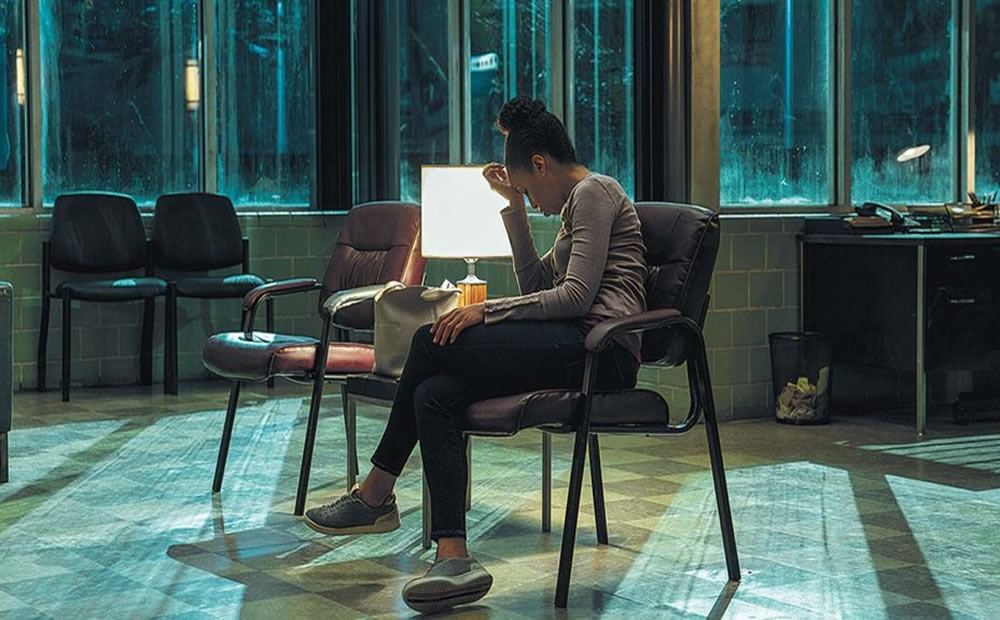Kerry Washington's performance in American Son will make its way from its Broadway beginnings to Netflix on Friday — a role the actress describes as being placed within "every parent's absolute worst nightmare."
Written by Christopher Demos-Brown and directed by Kenny Leon, the 90-minute chamber drama follows Kendra Ellis-Connor (Washington) as she struggles to learn any details about her missing, mixed-race teenage son, Jamal. Steven Pasquale, Jeremy Jordan and Eugene Lee also reprise their roles in the film adaptation.
American Son does not hold back in its discussion of race or identity as it follows a black mother being interrogated by a white police officer rather than being helped, an interracial couple rehashing the painful reasons their marriage fell apart and a black cop illuminating on the experience of those who fall into both categories.
During her interview with The Hollywood Reporter, Washington shared how her own experiences as a mother impacted her performance as well as what understanding can come to those who watch and learn the ultimate fate of one American son. What differences were there in your performance from stage to screen?
We just all had to take our foot off the gas a little bit. Onstage, you're having to communicate every molecule to the person who is 900 seats away. Your audience, in film, is right there. The camera's right there. Since we had basically rehearsed the movie for four months, we just all had to kind of trust ourselves and take our foot off the gas a little bit.
What went through your mind as you interacted between Jeremy Jordan's Officer Larkin, Steven Pasquale's Scott and Eugene Lee's Lt. John Stokes?
Code-switching is now becoming a commonly understood dynamic. What I thought was so interesting is that Kendra does spend the play kind of trying to contort herself, twist herself into acceptable shapes to try to get what she needs from the men around her. We watched her in the very beginning try to be polite and contain her anger with Larkin (Jeremy Jordan). Then with her husband, she's trying to hold her ground and be his equal, so it's a new shape-shifting. Then we get to see with Eugene Lee this kind of language and tenor and pace and rhythm that black people only speak to other black people. It's a version of Kendra we haven't seen, even though we've seen her with a virtual stranger and her most intimate partner. There's still another layer to her identity and her blackness that only becomes revealed with Eugene's character
Source: https://www.hollywoodreporter.com
